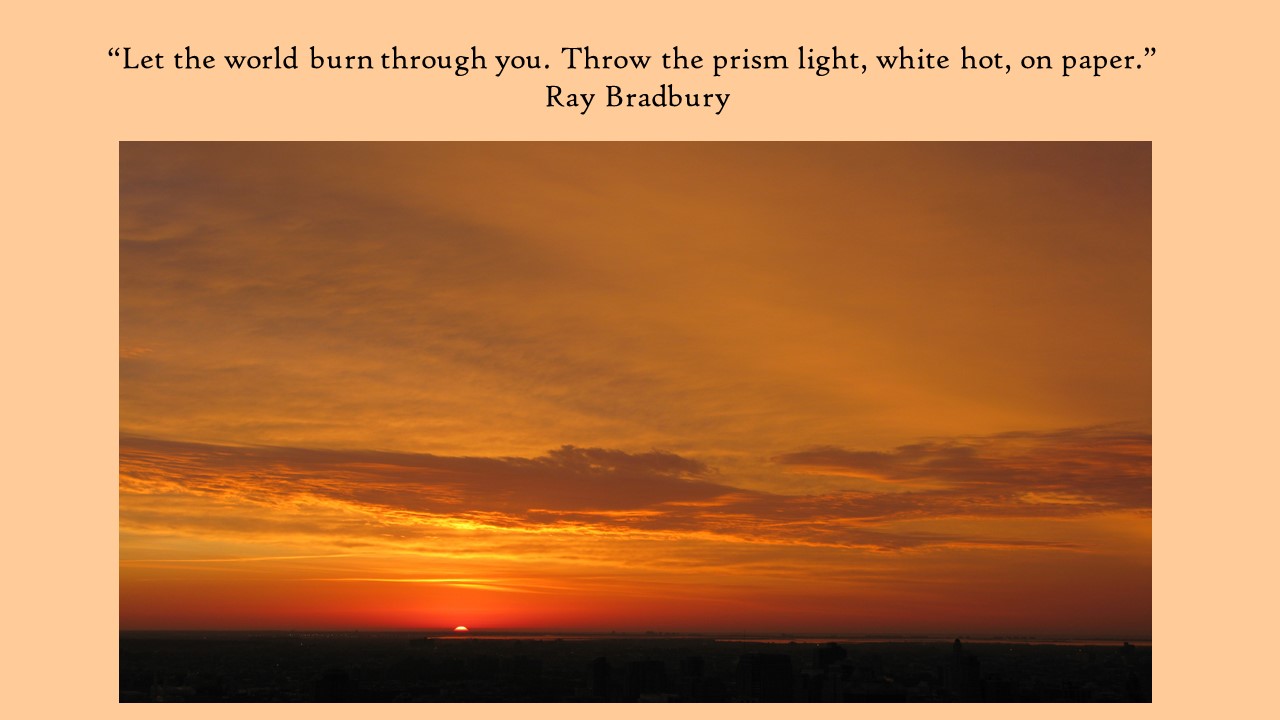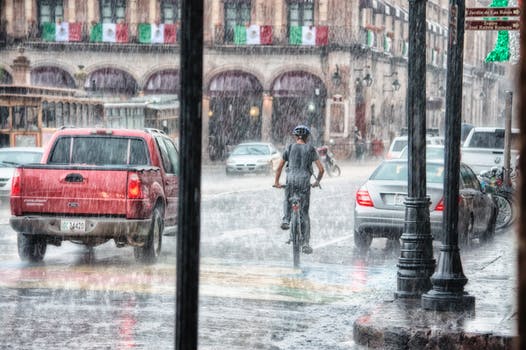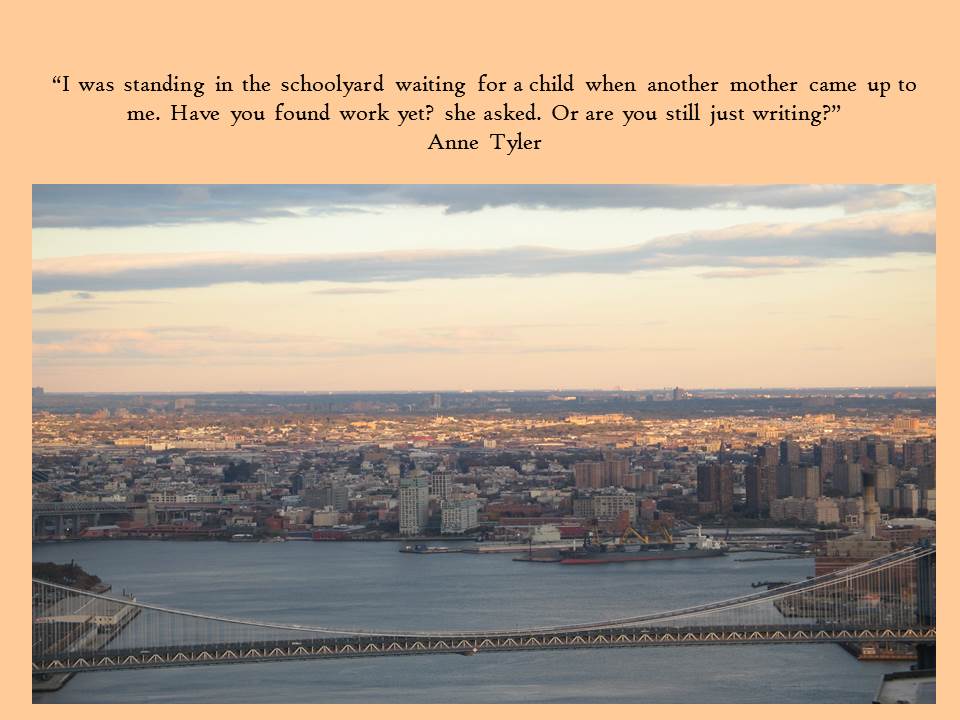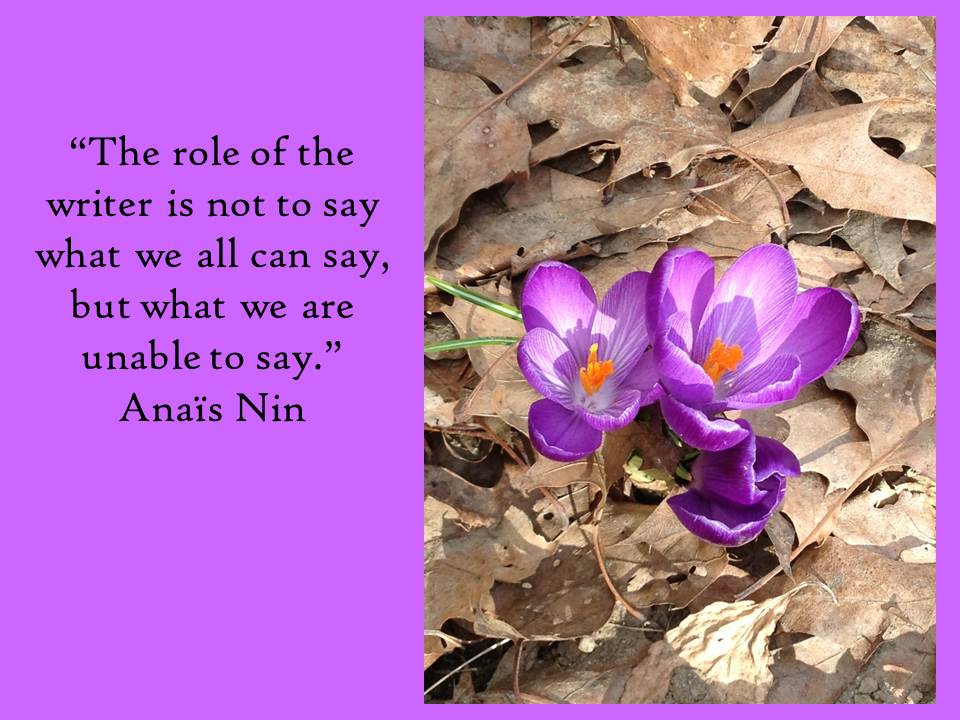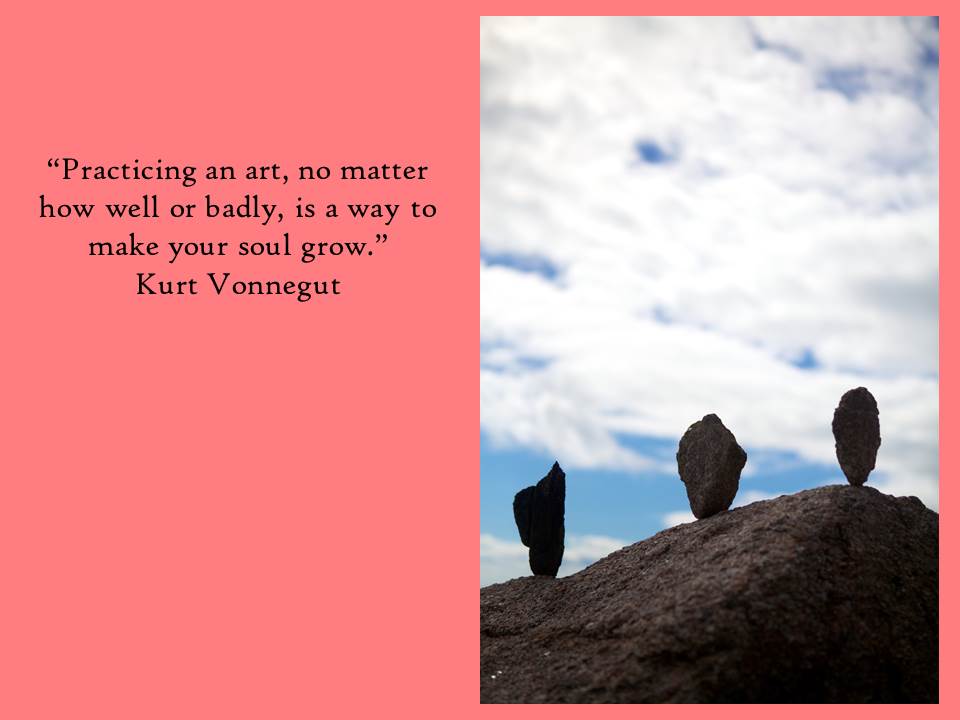
Give your readers clues to who your characters are through your descriptions of their homes, their workplaces, their cars, and the like. For a challenge, describe one of these places–or anywhere your character spends a lot of time–but keep your character out of it. Don’t get into his or her head to explain why she chose that piece of furniture, why a ceramic bowl teeters on the edge of his nightstand. Don’t make value judgments. Describe the color of a room as the same shade of green as the algae that covers the nearby pond, not as a judgmental bilious green. Simply by observing this space your character occupies, you may uncover surprising depths about who she is.

Some more song lyrics to use as prompts:
“Thirteen years old in the suburbs of Denver, standing in line for Thanksgiving dinner at the Catholic church … Styrofoam plates, cafeteria tables” (Death Cab for Cutie)
“Met my old lover in the grocery store, The snow was falling Christmas Eve” (Dan Fogelberg)
“Woke up, fell out of bed, dragged a comb across my head. Found my way downstairs and drank a cup, and looking up I noticed I was late.” (The Beatles)


A friend posted on Facebook a question she never thought she’d hear her dad ask: “How much was that moonshine?” So there’s your prompt. (Amazingly, Facebook can be good for some things.)Earlier this year, a student gave me a cocktail napkin that reads: “Alcohol. Because no great story ever started with someone eating a salad.” So write a scene–or a story if you get really inspired–that starts with someone drinking. And then write one that starts with someone eating a salad.Someone writes under a friend’s yearbook picture: Why didn’t you ever dance with me?
Write two pages of dialogue between two people, but write only dialogue. No dialogue tags, no body language, no identification of who is speaking. It should look like this:“When did you get here?”
“A while ago.”
“So you want to do this?”
“I’m game if you are.”
As you write, the speakers’ voices should become increasingly distinctive, so that a reader would have no trouble following along. And, of course, eventually the reader should be able to figure out who these people are, where they are, and what they are talking about.
More song lyrics:
“I was working on a steak the other day. I saw Waddy in the Rattlesnake Cafe, dressed in black, tossing back a shot of rye.” (Warren Zevon)
“I’m up in the corner nursing a beer, who should come laughing and joking in here but Bobby Brown, the winner of the sports car race, with some friends and a girl, man, she lit up the place.” (Mark Knopfler)
Read advice columns. People will write in about the most unusual problems, and I often want to know more about either the person asking for help or the person/people she’s writing about. I mean, how can you resist this one? A woman writes in, saying that her mother-in-law is an incorrigible gossip and tells the daughter-in-law things she really doesn’t want to know; such as, Bob and Carol can’t have children because Bob is sterile. Try writing a dialogue between the young woman and her mother-in-law. Or how about the sisters who haven’t spoken to each other for twelve years and are about to meet again at a must-attend family function? What drove them apart? What will they say–and not say–when they meet again? And how about the other family members? How will they react?Next time you’re at the checkout in the supermarket, see what the other people in line have in their carts. What do those items tell you about them? What do you imagine the person’s home looks like? Who else lives in that home, or does the person live alone? Write a scene of the person coming home and putting his or her groceries away.First line: “Who finished the milk?”“I remember …” Just write those two words down and keep going. See what arises. If you run out of things you remember and ten minutes aren’t up yet, try “I don’t remember …”Sometimes song lyrics can inspire writing. So try these:
“I fumbled through my closet for my clothes and found my cleanest dirty shirt.” (Kris Kristofferson)
“Put your makeup on, fix your hair up pretty and meet me tonight in Atlantic City.” (Bruce Springsteen)
“The yard is full of rubbish, it’s a mess and the neighbors must think we run a meth lab.” (Courtney Barnett)
